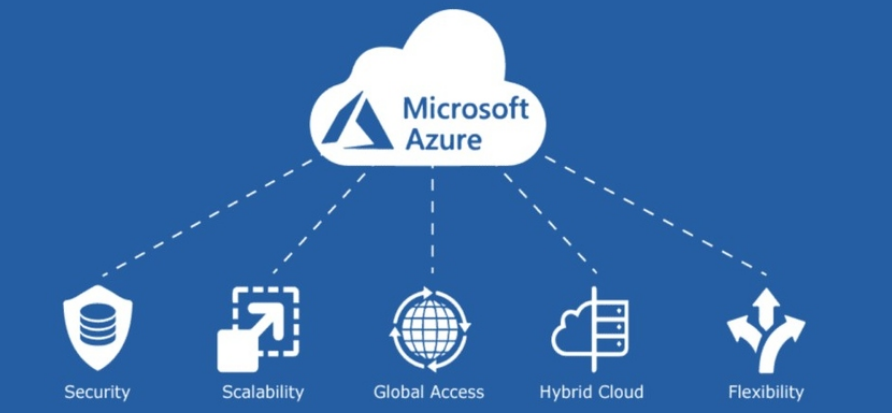Top 10 Azure Interview Questions And Answers
Microsoft Azure is an online computing platform. This article has 10 Azure Interview question and answers along with bonus questions that you can use on your interview day.
Preparing For Azure Interview Questions
If you are looking to land a job in the Azure industry, it is essential that you prepare for the interview questions that will be asked. Consider these tips:
1. Do Your Research
Learn as much as you can about Azure before your interview. This will help you answer questions more effectively during the interview.
2. Be Prepared To Talk About Your Experience
When prepping for the interview, be sure to discuss your experience working with Azure. This will help show that you have the skills and knowledge needed for the position.
3. Know The Basics
Be sure to understand the basics of Azure, such as its architecture and how it works. This will help you answer questions more quickly and confidently.
Here Are The Top 10 Azure Interview Questions And Tips For Answering Them-
What Made You Decide To Pursue A Career In Cloud Computing?
There are many career paths today. If you’re considering a career in cloud computing, you’ll want to be prepared to answer questions about your motivations and qualifications. Here’s a tip for the first Azure interview question and answers, “Why did you choose a career in cloud computing?“
When interviewers ask this question, they’re looking for two things:
- First, whether your motivations align with what’s important to the company.
- Second, whether you have the technical skills and experience required for success in the role.
To prepare for this question, take some time to think about why you’re interested in cloud computing. Are you attracted by the challenge of working with complex technical systems? Do you enjoy working with cutting-edge technologies? Or are you motivated by the opportunity to help businesses reduce their costs and increase their efficiency?
Whatever your reasons for pursuing a career in cloud computing, make sure that you can articulate them clearly and concisely. You should also be prepared to discuss your technical qualifications and any relevant experience you may have. You’ll show that you’re serious about pursuing a career in cloud computing – and that you’re qualified.
What Are Some Of The Most Popular Services Offered By Azure?
By taking a Azure Training in Chennai, the Certification offers a variety of services that are popular among businesses, including storage, computing, networking, and databases. Azure also offers cloud-based solutions for front-end and back-end development, as well as for management and DevOps. In addition, Azure provides a number of other services that are useful for businesses, including monitoring, identity management, and security.
Some Of The Most Popular Services Offered By Azure Include:
-Compute: Services such as Azure Virtual Machines and Azure Cloud Services allow you to deploy and manage scalable web applications and services.
-Storage: Services such as Azure Blob Storage and Azure Files provide secure cloud storage for your data.
-Databases: Services such as Azure SQL Database and Azure Cosmos DB offer managed databases that are highly available, scalable, and secure.
-Networking: Services such as Azure Load Balancer and Azure Traffic Manager allow you to load balance traffic across multiple instances of your application.
-Security: Services such as Azure Active Directory and Azure Key Vault provide security for your application
You can answer this question based on your expertise and level of understanding.

Why Did You Choose Microsoft Azure And Not Aws?
When interviewing for a position that will utilize Azure, it is important to be able to answer the question of why you chose Azure over AWS. Several key reasons make Azure a more attractive option than AWS. Discussing these reasons in an interview will show that you have done your research and are committed to working with the best tools available.
The first reason to choose Azure over AWS is scalability. With Azure, you can easily scale up or down as needed without reconfiguring your entire infrastructure. This is perfect for businesses that experience spikes in demand or need to quickly add new features without incurring major costs.
Another big advantage of Azure is its comprehensive set of services. With everything from storage and networking to artificial intelligence and analytics, Azure has everything you need to build sophisticated applications. And because all of these services work together seamlessly, you can worry less about compatibility issues and focus on building the best possible product.
Finally, one of the most appealing aspects of Azure is its pricing model. With Pay-As-You-Go pricing, you only ever pay for what you use, which means there are no surprise costs when your usage spikes. This makes it easy to budget for your projects and ensures that you never overspend on unnecessary resources.
Choosing Azure over AWS is smart for any business looking to build cutting-edge applications at scale. By utilizing its scalability, comprehensive services, and flexible pricing model, businesses can save time and money while still delivering high-quality products.
How Did You Learn Azure?
When interviewing for a position that requires Azure experience, gain knowledge on Azure interview question and answers and be prepared to discuss how you learned about the platform. In many cases, candidates will have gained exposure to Azure through their work with other cloud providers. However, there are also many excellent resources available for those who want to learn more about Azure on their own.
One way to learn about Azure is through Microsoft’s free online courses. These courses cover a wide range of topics related to cloud computing and Azure specifically. They are a great way to get started with learning about the platform. Another excellent resource is the documentation provided by Microsoft itself. This documentation is comprehensive and covers all aspects of using Azure.
Finally, there are many third-party books and websites that provide information on Azure. These can be a great supplement to the other resources mentioned above. When preparing for an interview that focuses on your knowledge of Azure, be sure to review all of these materials so that you can confidently answer any questions that come up.
Tell Me About A Problem You Solved At Your Prior Job With Azure
When interviewers ask this question, they are looking to see if you have the ability to identify and solve problems. They want to know if you can think on your feet and come up with creative solutions. while answering to this Azure interview question and answers.
To answer this question, think of a time when you faced a challenge at work. It could be anything from a technical issue to a customer service complaint. Then, describe how you identified the problem and what steps you took to resolve it. Be sure to include any obstacles you faced along the way and how you overcame them.
This is an opportunity to show off your problem-solving skill. So be sure to give a detailed account of what transpired. This will demonstrate that you are resourceful and capable of finding innovative solutions when faced with challenges.
What Is The Difference Between SaaS, PaaS, And IaaS?
The main difference between SaaS, PaaS, and IaaS is the level of control that the customer has over the underlying infrastructure.
With SaaS, the customer generally has no control over the infrastructure. The provider takes care of all aspects of maintaining and upgrading the service. In some cases, the customer may be able to customize certain aspects of the application, but they cannot modify or change the underlying infrastructure.
PaaS provides a bit more control to the customer than SaaS. With PaaS, the provider manages most of the infrastructure but allows customers to deploy and manage their own applications on top of it. Customers have some control over how their applications are configured and can scale them up or down as needed.
IaaS gives customers even more control than PaaS by providing them with access to bare-metal servers or virtualized server instances that they can use to run any type of workload they want. Customers are responsible for managing their own operating systems, applications, storage, and networking resources.
Can You Say Something About Azure Cloud Service?
When interviewing for a position that will require working with Azure Cloud Services, be prepared to discuss your experience and knowledge of the topic. Be sure to emphasize any previous work you have done with cloud-based applications and services, as this will show that you have the necessary skill set for the job. In addition, make sure to highlight any specific Azure products or features that you are familiar with. By demonstrating your understanding of Azure Cloud Services, you will increase your chances of being hired for the position.
What Are The Various Models Available For Cloud Deployment?
There are three primary models for cloud deployment: public, private, and hybrid. Public clouds are owned and operated by third-party service providers, such as
- Amazon Web Services (AWS)
- Microsoft Azure and
- Google Cloud Platform (GCP)
Also, Private clouds are owned and operated by a single organization. Typically it will be within their own data center. Hybrid clouds combine aspects of both public and private clouds, with some workloads running on a public cloud and others on a private cloud.
The choice of which model to use for a particular workload depends on a number of factors, including the sensitivity of the data involved, the regulatory environment, cost considerations, performance requirements, and more. For example, organizations handling large amounts of sensitive data may opt for private or hybrid cloud deployment in order to keep that data under their own control. Conversely, organizations with less stringent data security requirements may be able to take advantage of the lower costs associated with public cloud deployments.
Ultimately, the best deployment model for an organization will depend on its specific needs and requirements. Organizations should carefully evaluate all factors before making a decision about which model to use.
What Is Azure Resource Manager?
Azure Resource Manager is a cloud computing service for managing and deploying resources on Azure. It provides a unified management experience for all your resources, including virtual machines, storage accounts, web apps, and SQL databases. You can use Azure Resource Manager to deploy, update, and delete all your resources in a single, coordinated operation. You can also roll back deployments if something goes wrong.
Azure Resource Manager makes it easy to work with other teams in your organization by providing role-based access control and activity logs. You can also use tags to organize your resources and bill them accordingly.
What Is Azure Automation?
Azure Automation is a cloud service that helps you automate operational tasks across your Azure resources. It can automate repetitive, time-consuming tasks to help you manage your infrastructure more effectively.
Azure Automation provides a way for you to author, test, and deploy automation. Azure-automation/docs/overview runs on a schedule or in response to an event. It also provides built-in integration with other Azure services. Enabling you to start and stop VMs. Configure networking components, or invoke web hooks based on automated actions.
To get started with Azure Automation, you first need to create an Automation account. This account will be used to store all of the assets associated with your automation jobs, including
- Runbooks (scripts)
- Variables
- Connections
- Certificates
Bonus Question: What Is Key Vault?
Key Vault is an Azure service that provides secure storage of secrets, such as passwords and API keys. It also allows for the management of certificates and other sensitive data. Key Vault can be used to store and manage both private and public keys and certificates.
In an interview, a key question about Key Vault might be:
“What are some of the benefits of using Key Vault?” Possible answer benefits could include:
- Increased security through encryption and access control
- Centralized management and control over secrets and keys
- Automated backup and disaster recovery
Final Thoughts
In conclusion, the Azure Interview questions and answers provided in this article will help you prepare for your next interview. With these tips, you should be able to confidently answer any questions about Azure that come up. Good luck!





